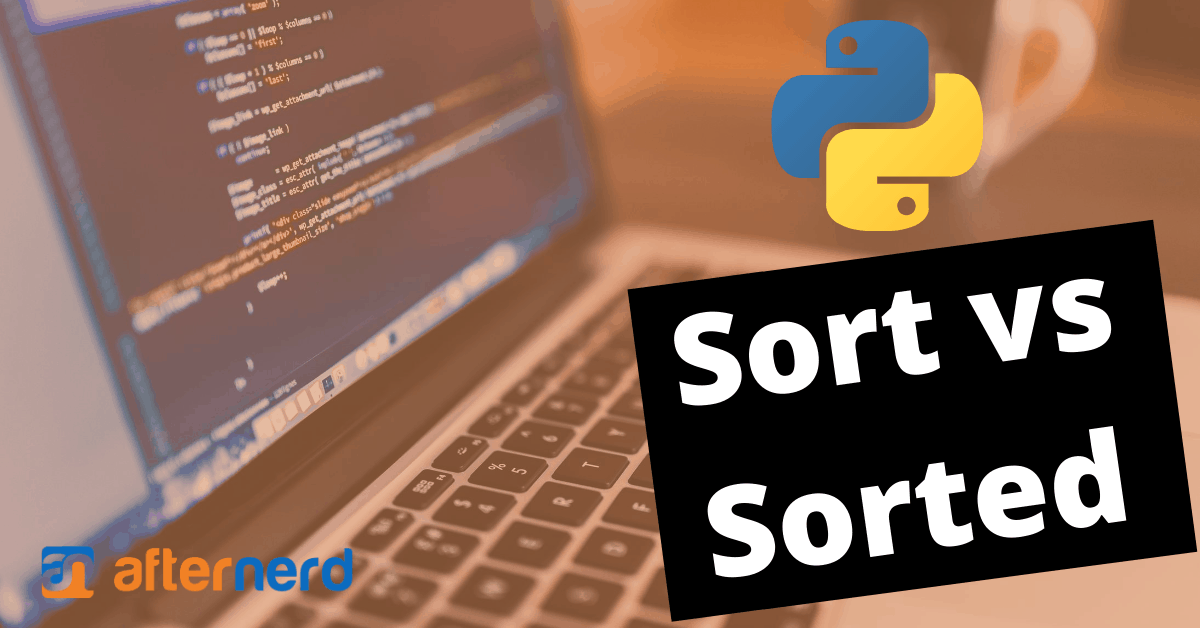In Python, you can use sort or sorted to sort a list.
But what is the difference between the two? This is what I will discuss in this article.
First: Sorting a Python List using Sort
sort() is a method on the list object.
Say, you have an arbitrary list L and you want to sort it. Here is what you can do.
>>> L = [5, 3, 7]
>>> L.sort()
>>> L
[3, 5, 7]There is one thing that I want to notice: L was sorted in-place. This means that no new lists were created.
You can double check that using the id built-in function.
>>> L = [5, 3, 7]
>>> id(L)
4477543040
>>> L.sort()
>>> L
[3, 5, 7]
>>> id(L)
4477543040Having the same id means that the location of the object is the same before and after sorting, which confirms that sorting happened in-place.
Now let’s talk about sorted().
Second: Sorting a Python List using Sorted
Unlike sort, sorted is not a method.
sorted() is a built-in function like print() or id().
Let’s try to use sorted to sort the same list from above.
>>> L = [5, 3, 7]
>>> sorted(L)
[3, 5, 7]
>>> L
[5, 3, 7]It doesn’t seem to work, does it? It looks like L hasn’t changed. Why is that?
Unlike sort, sorted creates a new list object and sorts the elements of the original list L in this new object without modifying the original list.
This is an essential difference between sort and sorted.
You can easily confirm that by inspecting the ids.
>>> L = [5, 3, 7]
>>> id(L)
4477542848
>>> id(sorted(L))
4477542976So with that in mind, the correct way to use sorted is as follows:
>>> L = [5, 3, 7]
>>> Q = sorted(L)
>>> Q
[3, 5, 7]So essentially, if you want to sort the elements of a list in place, use the sort method. But if you want to sort the items of a list in a new list object without modifying the original list, use the sorted built-in function.
What sorting algorithm is used for sort and sorted?
Both sort and sorted use the Timsort sorting algorithm which is a hybrid sorting algorithm between merge sort and insertion sort.
If you want to know more about Timsort and its superior performance, then I highly recommend reading this.
Advanced Questions
- How to sort a list of numbers? (ascendignly or descendignly)/a>
- How to sort a list of strings
- How to sort a list of tuples?
- How to sort a list of arbitrary objects?
Learning Python?
Check out the Courses section!
Featured Posts
- The Python Learning Path (From Beginner to Mastery)
- Learn Computer Science (From Zero to Hero)
- Coding Interview Preparation Guide
- The Programmer’s Guide to Stock Market Investing
- How to Start Your Programming Blog?
Are you Beginning your Programming Career?
I provide my best content for beginners in the newsletter.
- Python tips for beginners, intermediate, and advanced levels.
- CS Career tips and advice.
- Special discounts on my premium courses when they launch.
And so much more…

